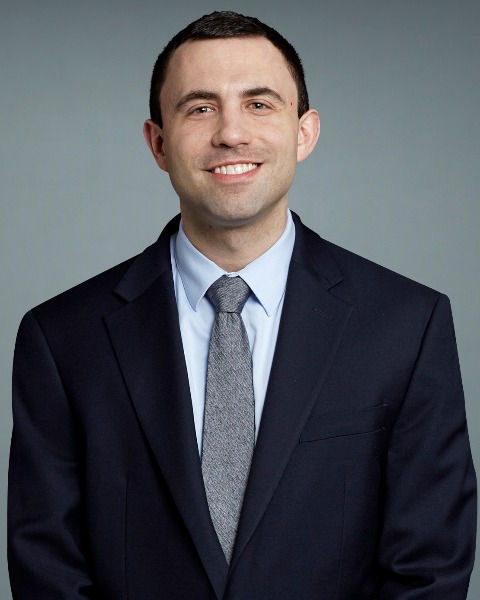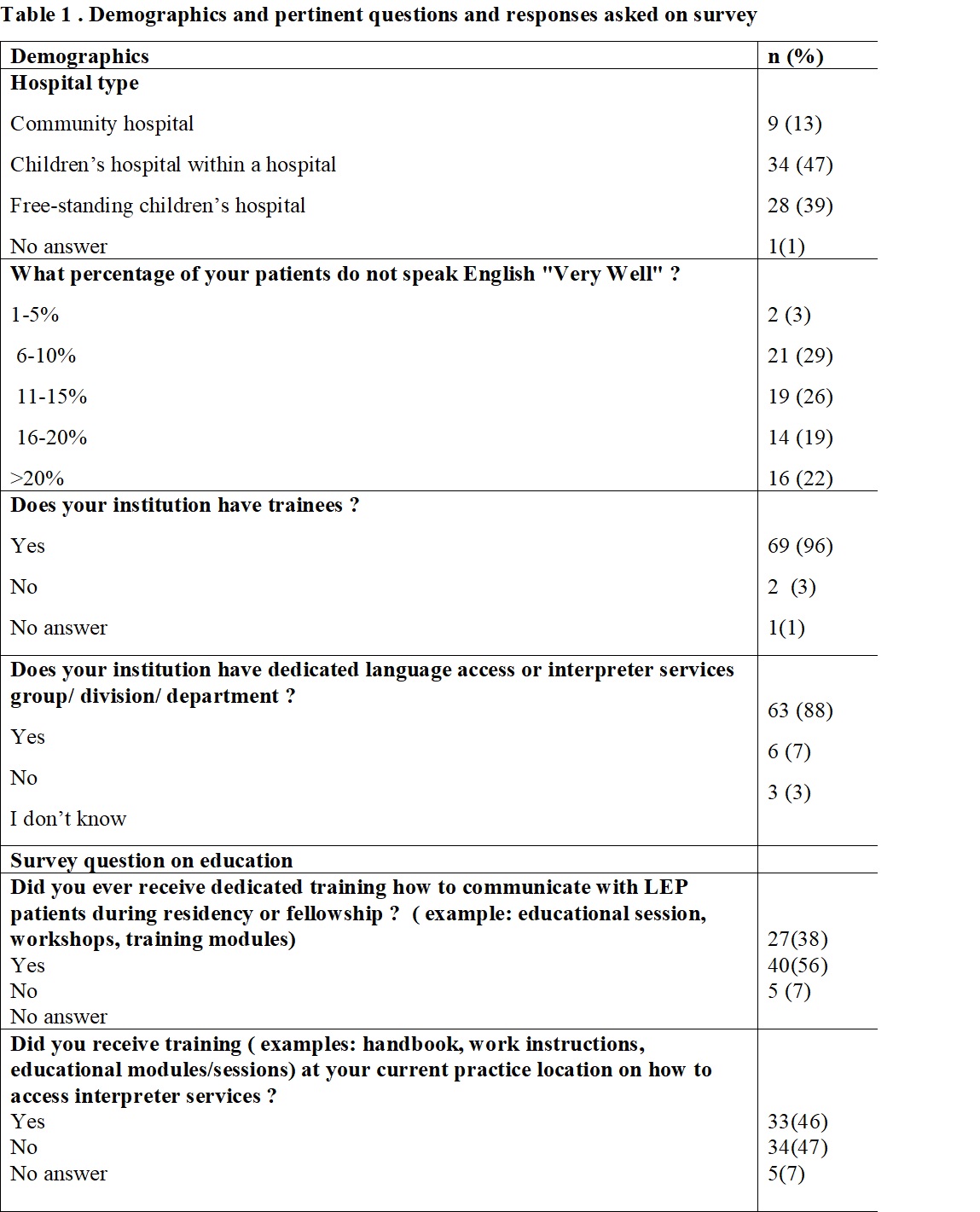Hospital Medicine: Education
Hospital Medicine 3
485 - Current state of educational programs available for pediatric hospitalists on language access
Saturday, April 29, 2023
3:30 PM - 6:00 PM ET
Poster Number: 485
Publication Number: 485.221
Publication Number: 485.221
Prabi Rajbhandari, Akron Children's Hospital, Akron, OH, United States; Alexander F. Glick, NYU Langone Health, New York, NY, United States; Jonathan VanGeest, Kent State University, College of Public Health, Kent, OH, United States; Miraides Brown, Akron Children's Hospital, Akron, OH, United States

Alexander F. Glick, MD, MS (he/him/his)
Assistant Professor of Pediatrics
NYU Langone Health
New York, New York, United States
Presenting Author(s)
Background: Linguistic services, both verbal and written translation are critical to providing equitable care for families with limited English proficiency (LEP). The scope of education provided to hospitalists on language access is not well studied. Not receiving education on how to use these services appropriately may be associated with gaps in knowledge and subsequent behaviours related to their use.
Objective: a) To evaluate the educational training provided to pediatric hospitalists during graduate medical education(GME) years and at their workplace b) To evaluate the association between educational training and knowledge on how to use translator services
Design/Methods: We conducted a multicenter cross-sectional survey of pediatric hospitals through the Pediatric Research in Inpatient Setting (PRIS) network, a hospital-based independent research network. We created the survey through an iterative process and underwent face validation with hospitalists and a survey methodology expert. The survey was distributed to PRIS site leads between 11/3-12/10/2021 using REDCap, and we requested a single response per institution. Survey questions on demographics and education received were developed through an iterative process. We examined associations between receipt of training related to linguistic services (no training, training in one location [GME and/or current workplace], or both locations with knowledge on how to access translator use and how often hospitalists advocated on behalf of families with LEP in last 6 months. Chi-square or Fisher's exact tests were used to assess associations between groups
Results: We received responses from 72 out of 112 PRIS hospital site leads (response rate 64%). Among respondents, 56% reported not receiving training on linguistic services during their GME years, and 47% reported not receiving training at their current workplace (Table 1). All participants who had training at both locations advocated on behalf of an LEP patient twice or more in the last six months (Table 2). Only 6.7% who received training at both locations reported not knowing how to access translation service, compared to 43% of those who received training at one location and to 27.3% among those who did not receive any training (p=0.03)
Conclusion(s): Many hospitalists do not receive training on how to appropriately communicate with families with LEP during GME years or at their current work. Receiving education on linguistic services is associated with advocating for families with LEP. Further work should explore increasing education during GME years and the current work to improve care for families with LEP

.jpg)
